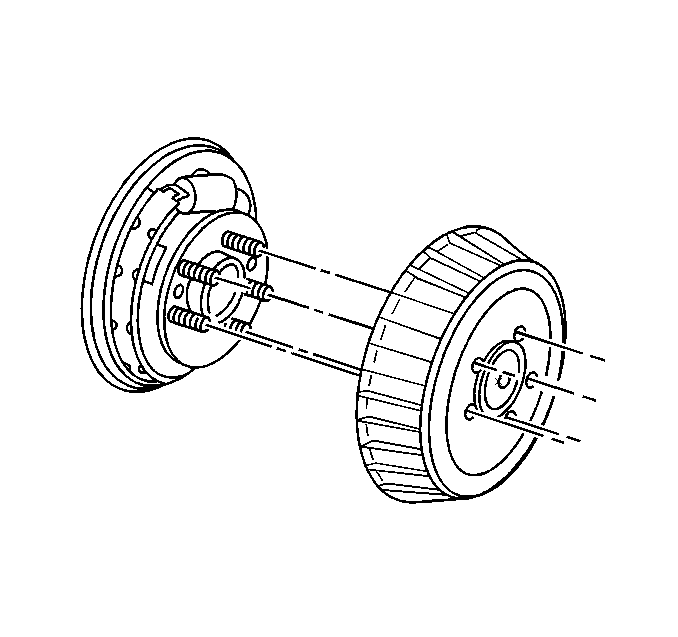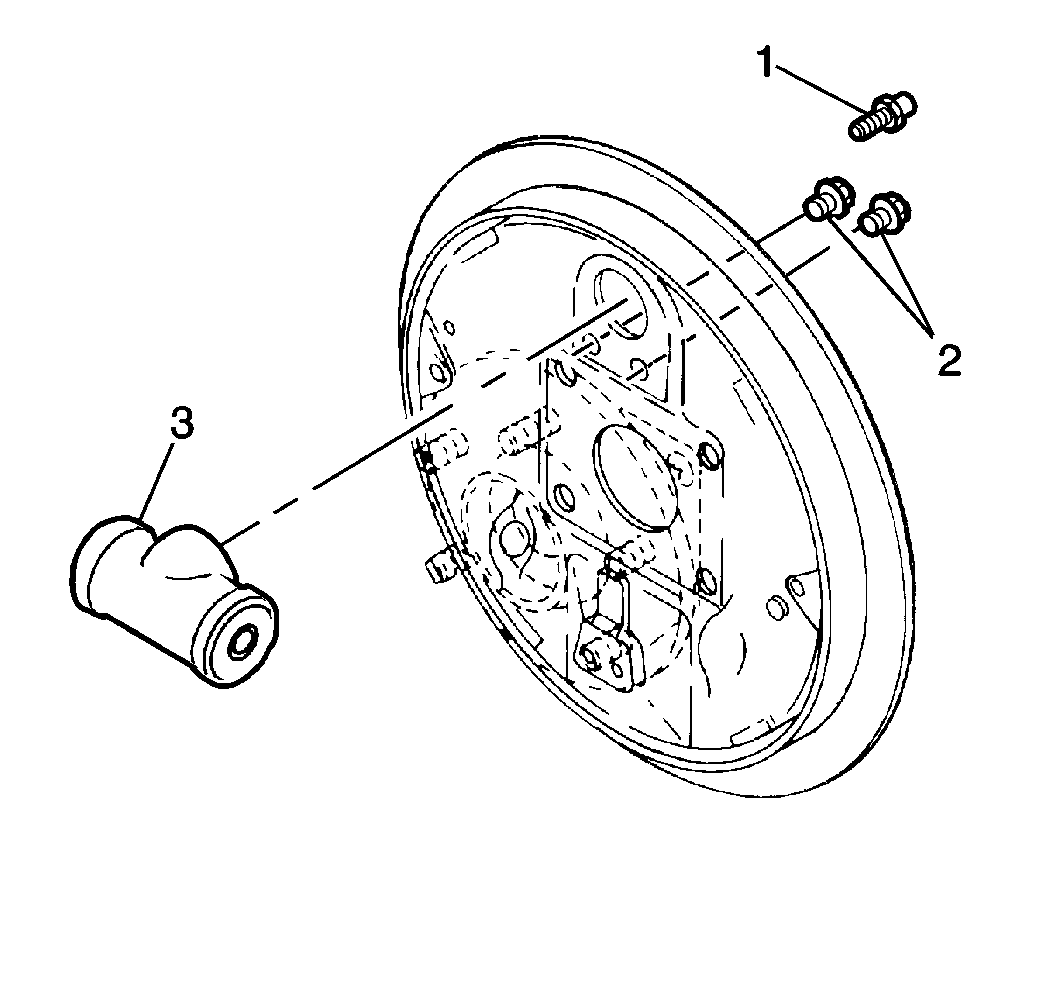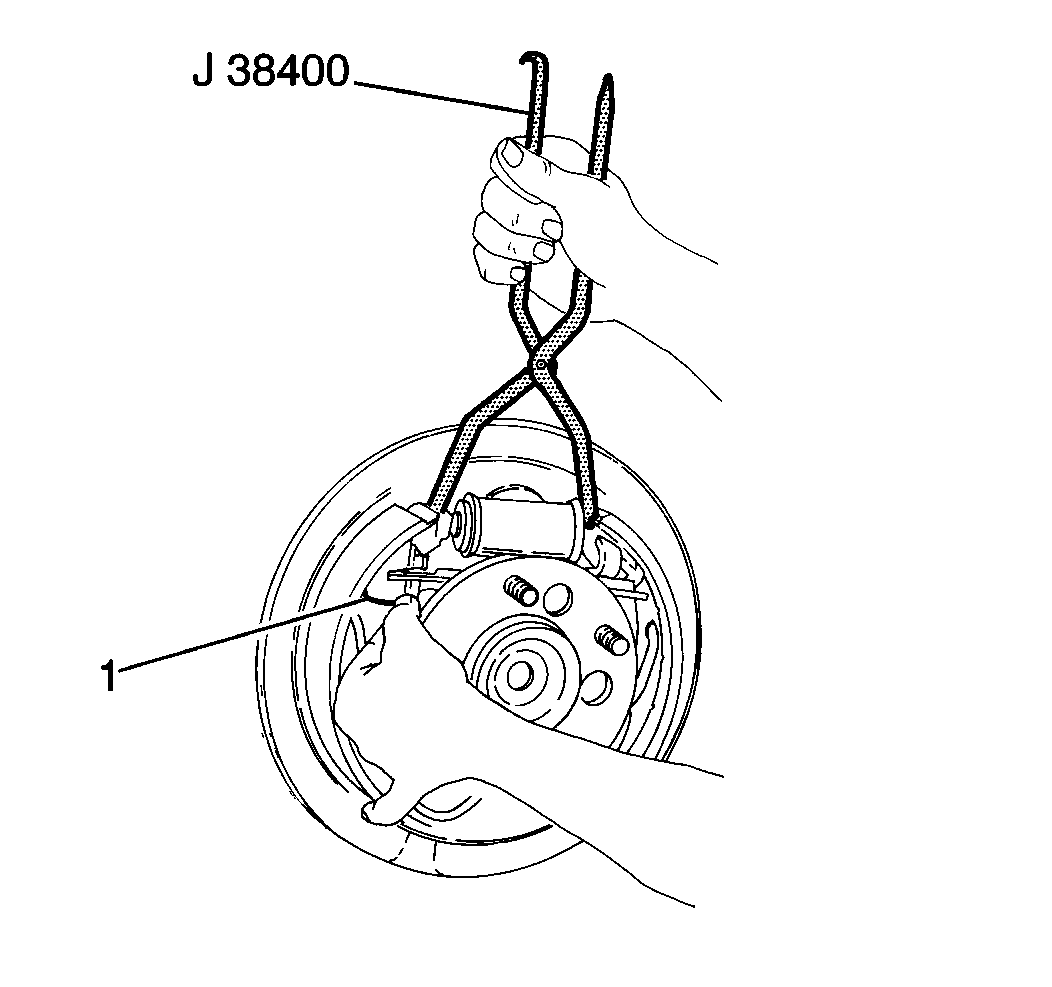Removal Procedure
Tools Required
J 38400 Brake Shoe
Spanner and Spring Remover
Caution: Keep fingers away from rear brake shoe springs to prevent fingers from
being pinched between spring and shoe web or spring and backing plate.
- Raise and support the vehicle. Refer to
Lifting and Jacking the Vehicle
in General Information.
- Remove the tire and wheel.
- Clean all dirt and foreign material from the wheel cylinder brake
pipe fitting and the bleeder valve.

- Remove the brake drum.
Refer to
Brake Drum Replacement
.
- Remove the brake pipe nut.
- Install a cap over the end of the brake pipe in order to prevent
brake fluid loss and/or brake fluid contamination.

- Remove the wheel cylinder
bolts (2).

- Use the J 38400
in order to spread the brake shoes
apart.
- Remove the wheel cylinder (3).
- Clean the old sealant from the backing plate where the wheel cylinder
was installed. Clean the sealant from the wheel cylinder if you are reusing
the wheel cylinder.
Installation Procedure
- Apply LOCTITE® GM P/N 12345382 (or equivalent) to the
wheel cylinder shoulder face which contacts the backing plate.

- Use the J 38400
in order to spread the brake shoes
apart.

- Install the wheel cylinder
(3).
Notice: Use the correct fastener in the correct location. Replacement fasteners
must be the correct part number for that application. Fasteners requiring
replacement or fasteners requiring the use of thread locking compound or sealant
are identified in the service procedure. Do not use paints, lubricants, or
corrosion inhibitors on fasteners or fastener joint surfaces unless specified.
These coatings affect fastener torque and joint clamping force and may damage
the fastener. Use the correct tightening sequence and specifications when
installing fasteners in order to avoid damage to parts and systems.
- Install the wheel
cylinder bolts (2).
Tighten
Tighten the bolts to 12 N·m (110 lb in).
- Remove the cap from the brake pipe and install the brake pipe
to the wheel cylinder.
Tighten
Tighten the nut to 17 N·m (12 lb ft).
- Bleed the hydraulic brake system at the wheel cylinder. Refer
to
Hydraulic Brake System Bleeding
in Hydraulic Brakes.
- Install the brake drum. Refer to
Brake Drum Replacement
.
- Install the tire and wheel.
- Lower the vehicle.





